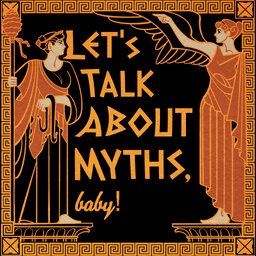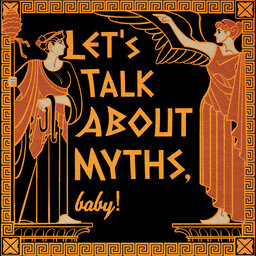It’s Almost Like Being Trans Isn’t New… Transgender Transformations in Ovid’s Metamorphoses
Now more than ever we should remember (and have evidence!) that being trans and seeking gender affirmation has always existed... This episode looks at the evidence in Ovid. Help keep LTAMB going by subscribing to Liv's Patreon for bonus content!
CW/TW: far too many Greek myths involve assault. Given it's fiction, and typically involves gods and/or monsters, I'm not as deferential as I would be were I referencing the real thing.
Sources: Ovid's Metamorphoses, translated by Stephanie McCarter (entries and end notes); "Reframing Iphis and Caeneus: Trans Narratives and Socio-Linguistic Gendering in Ovid’s Metamorphoses" by J. L. Watson.
Attributions and licensing information for music used in the podcast can be found here: mythsbaby.com/sources-attributions.
 Let's Talk About Myths, Baby! Greek & Roman Mythology Retold
Let's Talk About Myths, Baby! Greek & Roman Mythology Retold


